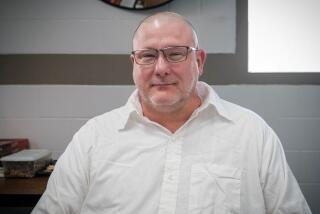Grand Jury Recommends Raising Lawyers’ Pay to Curb Fraud
- Share via
Alarmed by suspicions of over-billing and fraud, the San Diego County Grand Jury reported Wednesday that lawyers for the poor in certain juvenile court cases should get a raise from the $40 an hour the attorneys now earn.
A pay raise, the grand jury said, would decrease the chance that lawyers would feel underpaid and be tempted to over-bill, adding that a $40 hourly wage is “so low in relation to current costs that it may contribute to billing that is sometimes less than honest.” One lawyer, it said, recently billed the county for more than 24 hours in a day.
The grand jury also said that the county office that pays the lawyers needs to computerize and simplify the billing process. And it recommended a task force to study how the Juvenile Court works, saying that it too should be streamlined.
The panel’s recommendations marked yet another in a series of reports in recent years on one of the county’s most widely studied systems, its programs for providing indigent defense.
The federal Constitution demands that poor people be defended free of charge. The financially strapped county has insisted in recent years that indigents be defended as inexpensively as possible. But costs keep rising, and stability is proving elusive.
The grand jury did not specify what amount over $40 the private lawyers should be paid--only that it should be increased. County officials could not be reached Wednesday for comment but have said recently that raising lawyer pay is problematic because the county is so financially strapped.
The panel said it became concerned when it learned that one lawyer, a specialist in juvenile dependency cases, billed the county for $180,434 in 1989. The attorney billed the county for 27.8 hours one Sunday, the panel said. In dependency cases, the county seeks custody of a child it contends has been abused or neglected.
That attorney, not named in the report, is juvenile court specialist Peggy Moore, who did not return a phone call Wednesday to her office. She told The Times last year that she reported her time honestly.
Moore and other private lawyers are paid through a 3-year-old county agency called the Department of Alternate Defense Counsel. The agency needs to automate and to trim the number of forms--eight--it requires a lawyer to fill out for each client for payment, the grand jury said.
Elliot G. Lande, director of the office, said it has been developing plans to do both.
More to Read
Sign up for Essential California
The most important California stories and recommendations in your inbox every morning.
You may occasionally receive promotional content from the Los Angeles Times.













